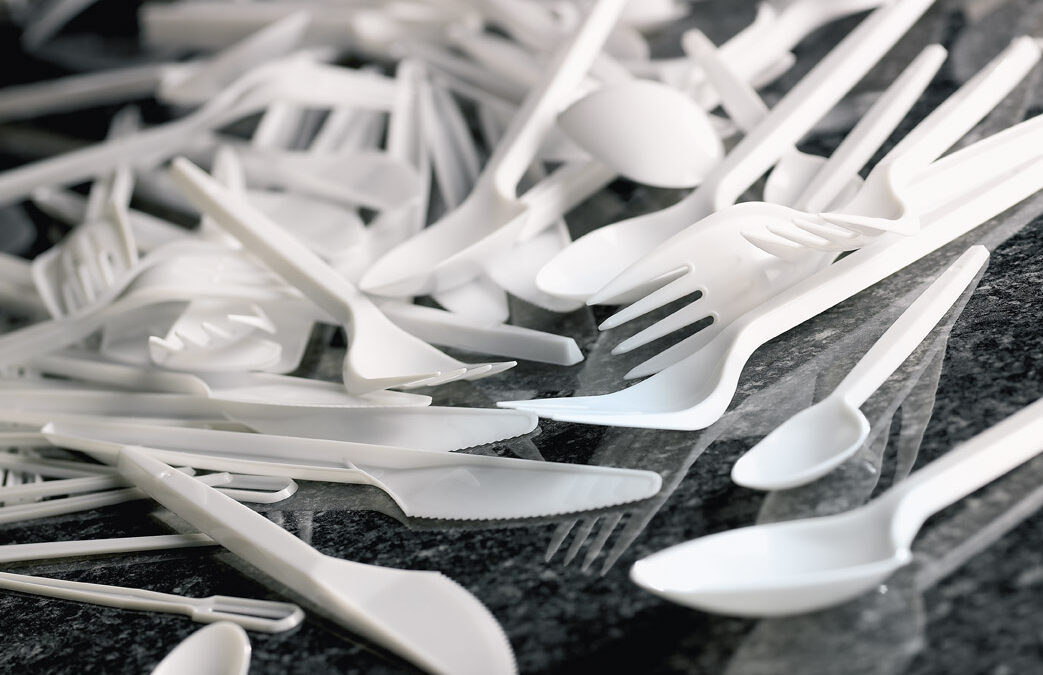Poland has introduced a law banning many single-use plastic products and allowing others to be used only if a special charge is applied and a warning label attached to them.
The new rules implement an EU directive on single-use plastics that entered into force in 2019. They were passed after the European Commission last year launched legal proceedings against Poland and ten other member states for failing to implement the directive by the 2021 deadline.
🥤The Commission is today taking legal steps against 11 Member States, calling on them to step up the implementation of the Single-Use #Plastics Directive in order to reduce the impact of certain plastic products on the environment and on human health.https://t.co/z10LpwoVRX pic.twitter.com/fGbTUr0WC8
— European Commission in Cyprus (@EUCYPRUS) September 29, 2022
Last month, President Andrzej Duda signed into law legislation introducing the new measures. This week it was published in Poland’s Journal of Laws, after which it comes into effect 14 days later.
As a result, nine types of single-use plastic will now be banned entirely: cotton buds (apart from for medical use), cutlery, plates, straws (apart from for medical use), drink stirrers, sticks attached to balloons, as well food and beverage containers and cups made from expanded polystyrene.
Businesses that violate those rules will face fines of between 10,000 and 500,000 zloty (€2,205 and €110,276), with the level decided based on “the degree of harmfulness of the infringement”.
Two of Poland's biggest supermarket chains have introduced reusable cotton bags for weighing fruit and vegetables. It is one of a number of measures retailers in Poland have been taking to reduce plastic waste https://t.co/2ekKr53DB2
— Notes from Poland 🇵🇱 (@notesfrompoland) January 29, 2020
The new rules also require that packaging for single-use plastic products which remain legal – such as sanitary products, wet wipes and tobacco products with filters containing plastic – must include clear labelling informing consumers about their harmful impact on the environment.
Meanwhile, charges up to a maximum of 1 zloty (22 euro cents) will be introduced for certain disposable products dispensed to customers, including food and drink packaging. The fee will be added to the price of the product and will be charged by the retail outlet to cover the costs of managing waste generated.
Retail outlets will also have to provide customers with a reusable or biodegradable alternative to single-use plastic cups.
The legislation notes that specific charges for individual products will be determined by the climate minister at a future date. This week, the climate ministry proposed draft legislation setting out those prices: 20 groszy (4.4 euro cents) for beverage cups and 25 groszy (5.5 euro cents) for food containers.
Delays in a new deposit system to encourage recycling will cost Poland billions in EU charges, industry figures and campaign groups have warned.
The government pledged to introduce the system this year but has still not approved the legislation https://t.co/oIb3zpMb6K
— Notes from Poland 🇵🇱 (@notesfrompoland) April 11, 2023
Main image credit: MPCA Photos/Flickr (under CC BY-NC 2.0)

Anna Hackett is an assistant editor at Notes from Poland. She is a recent graduate of European Studies from Trinity College Dublin and has had previous journalistic experience with the Irish Independent News & Media group.




















